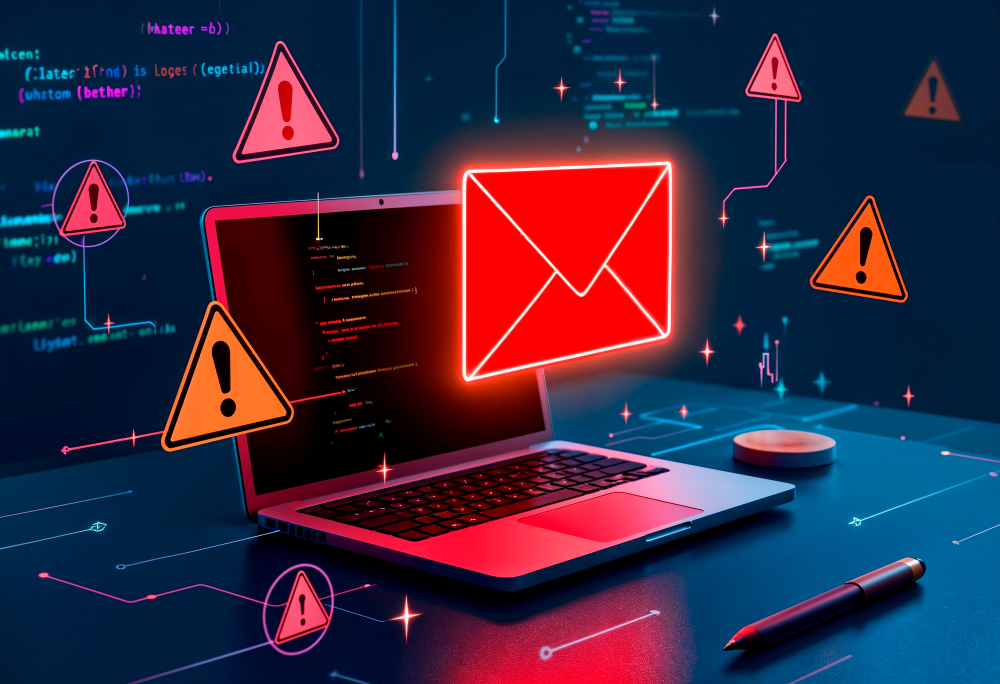Recent reports have highlighted instances of misleading voter registration communications attributed to the Democratic National Committee (DNC). In some cases, voters received emails or letters prompting them to verify or update their registration information. While some of these messages may have originated from official sources, others were identified as phishing attempts or unauthorized communications.
For example, the U.S. Election Assistance Commission (EAC) issued an alert about phishing emails impersonating the EAC, urging recipients to confirm their voter registration applications—a practice the EAC does not engage in . Additionally, in 2018, the DNC was involved in a cybersecurity incident where a phishing test conducted by a state party was mistaken for a real attack, underscoring the importance of clear communication and coordination within political organizations .
These incidents emphasize the need for voters to exercise caution when responding to unsolicited communications regarding voter registration. To ensure the legitimacy of such messages, voters are advised to verify information through official state or local election offices and to be wary of providing personal information through unfamiliar links or platforms.
The Origins of the Email.
To understand the potential threat posed by the email in question, we must first examine its source and authenticity. The email claims to originate from the Democratic National Committee (DNC), urging recipients to register or update their voter information.
However, a closer inspection reveals inconsistencies typical of phishing attempts. The sender’s email address does not match official DNC domains, raising immediate red flags. Cybersecurity experts often emphasize the importance of scrutinizing sender information, as legitimate organizations usually maintain consistent branding in their communication.
Historically, scams targeting voters are not new. In past election cycles, various political scams have emerged, preying on individuals’ desire to participate in the democratic process. For example, during the 2020 elections, numerous fraudulent emails claimed to offer registration assistance or updates from established political parties.
These scams exploit the urgency surrounding voter registration deadlines, prompting recipients to act quickly without verifying the source. By understanding this historical context, voters can better recognize patterns in fraudulent communications.
The current email fits a larger narrative of email phishing within the political sphere. Scammers often leverage election seasons to craft messages that appear time-sensitive, exploiting citizens’ civic responsibilities. The intent is clear: to gather personal information under false pretenses.
By dissecting the origins of this specific email and similar scams, we empower voters to discern authentic messages from deceitful ones, fostering a more informed electorate. Awareness is critical; the more individuals understand these tactics, the less likely they are to fall victim to such scams.
Key Claims Made in the Email.
The email in question makes several bold assertions designed to provoke urgency and concern among recipients. It claims that the Democratic National Committee (DNC) is launching an aggressive voter registration drive that requires immediate action from the reader.
Phrases like “Act Now!” and “Your vote matters!” dominate the text, creating a sense of panic. However, such language often serves as a tactic to bypass critical thinking, compelling readers to act without verifying the source or legitimacy of the claims.
Upon closer examination, the email also includes alarming statistics about low voter registration rates, implying that if individuals do not respond promptly, they risk disenfranchisement. This strategy exploits fear, a common technique used in scams.
While raising awareness about voter registration is important, the use of misleading figures can distort the real situation and mislead well-meaning citizens into sharing personal information or clicking on harmful links.
Cybersecurity awareness becomes crucial here; understanding how these tactics manipulate emotions can help individuals approach such messages with skepticism.
Moreover, the email contains links that appear official but lead to dubious websites asking for sensitive information. The design mimics legitimate DNC communications, blurring the lines for unsuspecting voters. This blend of authenticity and deception is a hallmark of phishing scams.
The email does not provide verifiable contact information for the DNC, further indicating its fraudulent nature. Individuals must remain vigilant and learn how to report scams like this effectively, ensuring that such deceptive tactics do not go unchallenged.
In summary, the email’s key claims rely heavily on emotional manipulation and misleading information. By breaking down these assertions, voters can better arm themselves against potential scams. Staying informed and skeptical about unsolicited communications is essential in today’s digital landscape.
Expert Insights on Scams.
Cybersecurity experts emphasize the critical need for vigilance when it comes to recognizing scams, especially those targeting sensitive areas like voter registration. The Democratic National Committee (DNC) email in question serves as a reminder of how sophisticated these scams can be.
Experts note that scammers often mimic official communications, using logos and language that appear legitimate at first glance. This tactic exploits trust, making it essential for recipients to scrutinize emails carefully before taking any action.
For instance, an email may claim to be from a reputable source but contain slight discrepancies in email addresses or links that direct users to fraudulent websites.
In addition to recognizing red flags, experts stress the importance of verifying information before acting on it. Cybersecurity consultant Sarah Mitchell points out that many individuals fall victim to scams simply because they act impulsively.
She advises voters to take a step back and assess the situation critically. “If you receive an email urging you to register or update your voter information, cross-check that information with official sources,” she recommends. This verification process can prevent misinformation from spreading and ultimately protect voter registration safety.
Moreover, experts highlight the role of education in combating scams. By understanding common tactics used by fraudsters, individuals can better equip themselves against potential threats.
For example, phishing attempts often employ urgent language to create a sense of panic, pressuring recipients to respond quickly without verifying the claims.
Educating voters about such tactics fosters a culture of skepticism toward unsolicited communications, making it harder for scammers to succeed. Ultimately, the message is clear: knowledge is power in the fight against email scams.
Staying informed and vigilant is crucial in today’s digital landscape. As the DNC email scam illustrates, even well-intentioned citizens can become targets. By applying expert insights and prioritizing verification, individuals can enhance their defenses against scams and contribute to a safer electoral process.
Fact-Checking the Allegations.
To verify the claims made in the suspicious email regarding voter registration, a systematic fact-checking process is crucial. First, experts suggest examining the sender’s email address closely. Official communications from the Democratic National Committee (DNC) typically come from recognized domains like “@dnc.org.”
In this case, the email in question may have originated from a less reputable domain or one that mimics the official DNC address. This initial step can often reveal if an email is fraudulent.
Next, analyze the content of the email itself. Does it contain urgent language or threats about missing voter registration deadlines? Scammers often employ high-pressure tactics to compel recipients to act quickly without verifying information.
By contrasting these claims with verified sources—such as state election offices or the official DNC website—voters can better understand whether the assertions hold any weight. For instance, if the email states that voters must register by a specific date, checking against official DNC communications and state regulations can clarify the accuracy of that claim.
In addition, it’s essential to recognize typical characteristics of legitimate DNC correspondence. Official emails usually include clear branding, such as logos and consistent formatting. They also provide direct links to secure websites for further action.
If the email directs users to an unfamiliar site or asks for sensitive personal information, such as Social Security numbers or bank details, these red flags indicate potential fraud. Protecting personal information should always take precedence, especially during high-stakes electoral periods.
Finally, by engaging in diligent fact-checking and verifying all claims against official communication practices, individuals empower themselves against scams.
Voters can safeguard their rights and personal information by remaining vigilant and informed about how legitimate organizations operate. When faced with questionable emails, taking a proactive approach can significantly reduce the risk of falling victim to fraudulent schemes.
How to Recognize a Scam Email.
Scam emails often exhibit certain characteristics that can help you identify them quickly. One of the most common signs is poor grammar and spelling mistakes. Legitimate organizations, like the Democratic National Committee (DNC), typically maintain high standards for their communications.
If an email contains awkward phrasing or multiple typos, treat it with suspicion. Additionally, be wary of urgent language that pressures you to act immediately. Scammers often create a false sense of urgency to bypass your critical thinking.
Another red flag is the sender’s email address. Scammers frequently use addresses that mimic legitimate ones but contain slight variations. For instance, instead of “info@dnc.org,” a scam email might come from “info@dnc-secure.com.”
Always check the full email address before clicking any links or responding. When in doubt, go directly to the official website of the organization in question rather than using any links provided in the email. This ensures you access verified information directly from a reliable source.
Link verification is another crucial step in identifying scams. Before clicking on any links, hover over them to see where they lead. If the URL appears suspicious or does not match the supposed sender’s website, do not click.
Scammers often disguise malicious links with misleading text, making it seem as if they direct to a trustworthy site. Utilizing link checkers or URL expanders can also provide additional security by revealing the true destination of shortened or obfuscated links.
In summary, recognizing a scam email hinges on being vigilant about language, sender identity, and link authenticity. Fact-Checked: Is This Email About a Democratic National Committee Voter Registration Scam? encourages readers to be proactive in their defenses against email fraud.
By educating yourself on these warning signs and taking the time to verify information, you can protect yourself and others from falling victim to deceptive tactics.
Reporting Scams: What You Need to Know.
When you suspect an email is a scam, acting swiftly is crucial. Reporting the incident not only helps protect yourself but also aids in safeguarding others from falling victim. Begin by documenting all relevant details of the email, including the sender’s address, the subject line, and any links or attachments.
This information can prove invaluable when reporting to authorities. Utilize platforms like the Federal Trade Commission (FTC) or the Internet Crime Complaint Center (IC3) to file your complaint. These agencies collect data on scams and can investigate further.
In addition to federal resources, many states have their own consumer protection offices that accept reports on fraudulent activities. For example, California residents can contact the California Department of Justice’s eCrime Unit. They provide guidance on how to report scams specific to that region.
Utilizing these resources ensures that your report reaches the appropriate channels, increasing the likelihood of action against the perpetrator.
Victims of email fraud should not feel isolated or helpless. Several organizations offer support and guidance for those affected by scams. The Identity Theft Resource Center provides resources for individuals who need assistance navigating the aftermath of fraud.
They offer personalized support and can help you understand the steps necessary to protect your identity and recover any lost funds.
Finally, educating others about the importance of reporting scams amplifies your impact. Share your experience with friends, family, and community groups. Encourage them to be vigilant and proactive in recognizing and reporting suspicious emails.
By fostering a culture of awareness and action, we can collectively reduce the effectiveness of scammers and protect our communities from their deceitful tactics.
Empowering Voters Against Fraud.
Education and awareness play crucial roles in preventing scams, especially in the politically charged environment surrounding elections. Voters must equip themselves with the knowledge to identify fraudulent communications and protect their personal information.
The recent email claiming to be from the Democratic National Committee (DNC) highlights how easily misinformation can spread. This incident serves as a reminder that staying informed is an essential step in safeguarding oneself against potential fraud.
Several tools and resources are available to help voters discern legitimate information from scams. For instance, organizations like the National Association of Secretaries of State provide updated guidance on recognizing election-related fraud.
I am an accomplished author and journalist at Fact Finders Company . With a passion for research and a talent for writing, I have contributed to numerous non-fiction titles that explore a wide range of topics, from current events, politics and history to science and technology. My work has been widely praised for its accuracy, clarity, and engaging style. Nice Reading here at Fact After Fact.








